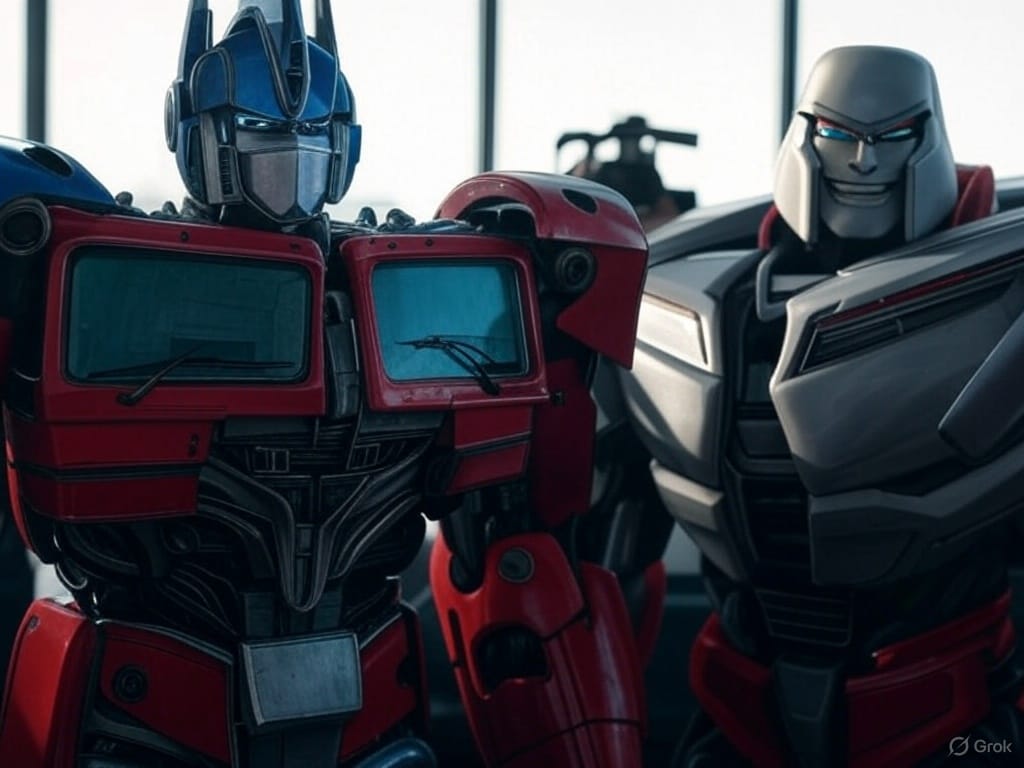Transformers: Forever War, No Deals, Just Toys—and a Mirror to Reality

The Critique
The Transformers franchise has a problem. It’s built on an endless cycle of war—Autobots clashing with Decepticons in a struggle that never resolves. There’s no negotiation, no “art of the deal”, just perpetual conflict. One might argue it’s a machine designed to sell toys, much like how endless wars in the real world keep the weapons industry humming. A fan recently put it bluntly: “Transformers encourages forever war, never negotiates, never masters the art of the deal; just forever war to sell toys (corresponding to sell weapons in real world).” It’s a sharp take, and it’s worth digging into.
The Response
At its core, Transformers thrives on a simple premise: good robots versus evil robots, locked in a battle that spans planets and millennia. Peace isn’t the goal—war is. The original 1980s cartoon was, let’s be honest, a glorified commercial for Hasbro’s toy line. Every episode introduced new characters, new weapons, and new reasons to fight, all to keep kids running to the store for the latest Optimus Prime or Megatron figure. Conflict was the engine; resolution would’ve stalled it. George Orwell captured this dynamic chillingly in 1984: “The war is not meant to be won, it is meant to be continuous.” In Transformers, that continuity keeps the cash flowing.

The critique holds weight when you look at the mechanics. Escalation is constant—bigger guns, new factions like the Dinobots or Constructicons—but diplomacy? A rare guest star. The “art of the deal” doesn’t fit because compromise would kill the action-driven formula that keeps the franchise alive. Michael Bay’s blockbuster films double down on this: explosions trump talking, spectacle buries substance. It’s a war machine, both on-screen and off, churning out toys and tickets.
Then there’s the real-world parallel. Endless conflict isn’t just a plot device—it’s a business model. In reality, prolonged wars profit arms dealers; peace doesn’t move inventory. The fan’s observation stings because it connects the dots: Transformers mirrors a world where perpetual struggle sustains industries, whether it’s plastic robots or actual weapons.
The Question Lingers
Is this intentional design or just a byproduct of the action genre? The franchise could lean into negotiation—imagine Optimus brokering a truce with Megatron—but that’d risk losing the chaos that defines it. Maybe it’s both: a story born to sell toys, accidentally reflecting a deeper truth about conflict’s profitability. What do you think—does Transformers glorify forever war on purpose, or is it just too hooked on its own adrenaline to notice?
-- Me@2025-03-21 07:47:27 AM
.
.
2025.03.22 Saturday (c) All rights reserved by ACHK



